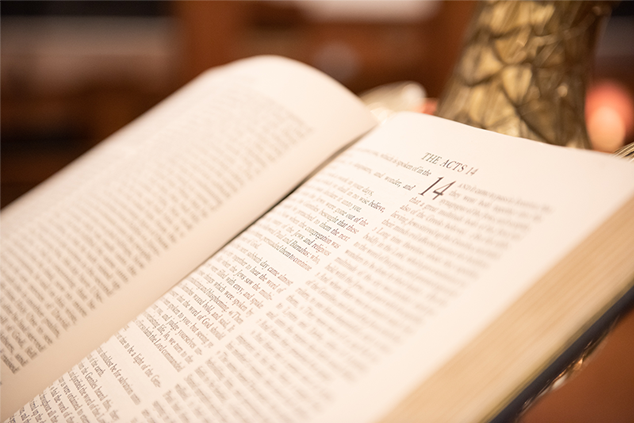For a long time this feast day of Christ the King didn’t particularly resonate with me. When I found myself having preach on this day that prompted me to examine the routes of the celebration more closely and initially that didn’t really help because discovering that it only been instituted in the 1920’s and that its place in the lectionary had been moved since then did nothing to suggest to me that I needed to reassess its importance. Over the years though that has assessment has changed because year after year it has struck me that its message is of growing relevance.
This feast was born out of a world deeply fractured by war, nationalism, and the growing secularisation of society. It was a prophetic response to humanities forgetfulness over the source of true peace and justice. In his encyclical Pope Pius XI observed that the world was increasingly rejecting the authority of Christ, and in doing so, was descending into chaos. The Great War had left nations devastated, and ideologies were rising that placed human power and national pride above divine truth. The Church, in her wisdom, saw the need to reassert the kingship of Christ—not as a political ruler, but as the sovereign of hearts, minds, and nations. It is a feast that stands as a bold proclamation: Christ is King—here and now.
We live in an age where national power is increasingly elevated above moral responsibility. Borders are drawn more tightly, and political rhetoric frequently appeals to fear rather than compassion. Leaders speak of greatness in terms of dominance, wealth, and control, while the gospel calls us to greatness through service, humility, and love.
In such a world, the Feast of Christ the King is not merely a liturgical celebration—it is a counter-cultural declaration. It reminds us that the kingdom of God is not built on conquest or exclusion, but on mercy and justice. It is a kingdom where the poor are blessed, the meek inherit the earth, and the peacemakers are called children of God.
Christ’s kingship is radically different from the kingships of this world. When Pilate questioned Jesus, asking if He was a king, Jesus replied, “My kingdom is not of this world.” He did not come with armies or political power. He came with healing hands, a heart full of compassion, and a message of love that transcends every boundary.
To proclaim Christ as King is to reject the idols of nationalism, materialism, and self-interest. It is to affirm that our neighbour is not defined by proximity or nationality, but by shared humanity. It is to recognise that the refugee, the stranger, the outsider—all are beloved citizens of Christ’s kingdom.
This feast challenges us to examine our loyalties. Do we pledge allegiance to Christ in our daily lives, or do we allow the values of the world to shape our decisions? Do we build walls or bridges? Do we seek power or peace?
The kingship of Christ calls us to a higher standard. It calls us to love across borders, to serve without seeking reward, and to speak truth even when it is unpopular. It calls us to remember that every person we encounter bears the image of God and is worthy of dignity and respect.
In our time, when divisions seem to grow deeper and compassion is often overshadowed by competition, the message of Christ the King is more urgent than ever. We are called to be ambassadors of His kingdom—living out the values of justice, mercy, and love in our communities, our politics, and our relationships.
Christ’s throne was a cross. His crown was made of thorns. His royal decree was forgiveness. His victory was won through sacrifice. This is the kind of King we follow—a King who lays down His life for His people, who washes the feet of His disciples, who welcomes the sinner and heals the broken.
As we celebrate this feast, let us seek to renew our commitment to live as citizens of Christ’s kingdom, to challenge the powers that seek to divide and dehumanise, to be bold in proclaiming that love is stronger than hate, that peace is more powerful than violence, and that Christ reigns not through force, but through grace.
May we strive to be people who live with kingdom values—who see beyond borders, who welcome the stranger, who speak truth to power, and who embody the love of Christ, our King, in all that we do. For in the end, every nation, every leader, every ideology will pass away. But the kingdom of Christ will endure forever. And in that kingdom, justice will roll down like waters, and righteousness like an ever-flowing stream.
Next week we begin the great period of anticipation and longing for the Christs coming. One of the joys of advent for me, is the great carol ‘O come O come Emmanuel’, the verses of which remind us of the prophetic attempts to describe and indeed to name the messianic saviour to come. The sixth of those ‘O’ antiphons, Rex Gentium, calls on Christ the King of the nations and recognises him as our creator:
O King of the nations, and their desire,
the cornerstone making both one:
Come and save the human race,
which you fashioned from clay.
I’ll his poem prompted by that antiphon Malcolm Guite reflects on the king within our flesh and bone who shapes us in the play of all creation.
O Rex Gentium
O King of our desire whom we despise,
King of the nations never on the throne,
Unfound foundation, cast-off cornerstone,
Rejected joiner, making many one,
You have no form or beauty for our eyes,
A King who comes to give away his crown,
A King within our rags of flesh and bone.
We pierce the flesh that pierces our disguise,
For we ourselves are found in you alone.
Come to us now and find in us your throne,
O King within the child within the clay,
O hidden King who shapes us in the play
Of all creation. Shape us for the day
Your coming Kingdom comes into its own.
Amen.







